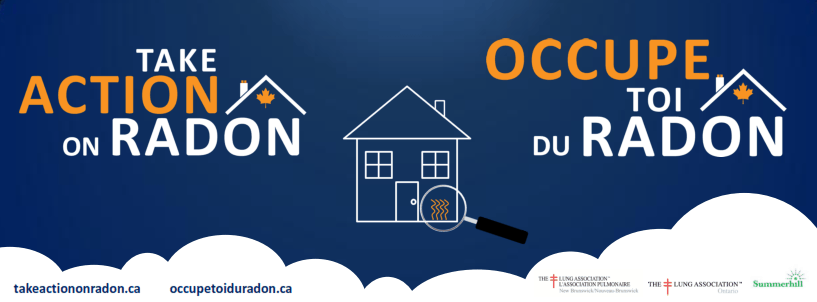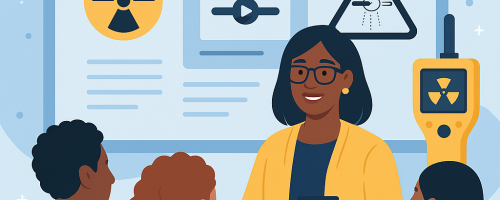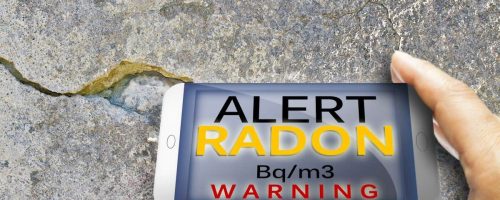Toronto, November 12, 2013. Canada’s first National Radon Action Month is taking place this November. Radon exposure is the leading cause of lung cancer for non-smokers and Canadians are urged to take action to protect their health and the health of their families.
“The health risk associated with exposure to radon gas is a subject the Radiation Safety Institute of Canada (RSIC) knows all too well. As a scientific organisation that was born out of the Elliot Lake tragedy, where some 220 uranium miners perished from excessive exposure to radon daughters, the RSIC is committed to educating people regarding the dangers of overlooking this safety issue” said RSIC President and CEO, Steven Mahoney. “This is why we are committed to supporting Take Action on Radon campaign and assisting Summerhill Impact Group and the Canadian Lung Association in making it a success.”
“November is the time to purchase your radon detector kit, because the winter months are the best time to test your home. Your windows are now usually closed and detectors will record levels that show you your highest risk.” added Steve Mahoney.
Health Canada is supporting the development of a national collaborative radon action campaign, to be promoted each November. Take Action on Radon (www.takeactiononradon.ca) is coordinated by the New Brunswick Lung Association, the Ontario Lung Association and Summerhill Impact.
“The Lung Association is very proud to launch Radon Action Month, in partnership with Summerhill Impact Group and with support from Health Canada,” said Barbara MacKinnon, President and CEO of the New Brunswick Lung Association. “The initiative enables us to partner with organizations across the country to share information about the health risks of radon and to motivate Canadians to take action to reduce their radon exposure. A key strength of our Association lies in our ability to translate science into usable information for Canadians, so that together we can prevent lung disease. This campaign builds on that strength and is all about enabling people with the information they need to protect their family’s health. ”
All Canadians are urged to test their home for radon using a long-term test kit available at many hardware stores; you cannot know the level of radon in your home unless you test. If the level of radon is over 200 becquerels per cubic meter (Bq/m³) there are simple steps you can take yourself to reduce the levels. Homeowners can visit Health Canada’s website for information on the steps they can take to reduce radon levels in their home, or you can hire a contractor to assist with remediation efforts. Contractors wanting to provide radon testing or mitigation services are advised to become a certified under the Canadian National Radon Proficiency Program (C-NRPP).
Ontario Lung Association president and CEO, George Habib, said that concerted action to reduce dangerous radon levels in homes and other buildings could prevent thousands of lung cancer deaths in Canada each year. “The Ontario Lung Association is proud to be a partner in this important public health campaign,” he said. “By taking action on radon we can prevent up to 16 percent of lung cancer deaths in Canada.”
“Our strength is in collaborating with organizations and businesses to find solutions that enable people improve their health,” said Heather Farquharson, Managing Director of Summerhill Impact. “Amongst the general public there is low awareness of Radon, its potential to harm, and what to do about it. We plan to change that.”
We need to raise the awareness of Canadians of the potential risk of radon gas in the home, and how to reduce that risk. It is an important issue which requires action which is why we have declared November Radon Action Month. As part of this effort, Health Canada has enlisted the help of a prominent, well-respected Canadian scientist to get the word out in both languages with an informative public service announcement. This PSA will be aired across the country on November 18th as part of Radon Action Month.
Information on Radon can be found on various websites including those of Health Canada, the Lung Association, and at www.takeactiononradon.ca.
For more information contact:
Jolene Miner, Radiation Safety Institute of Canada
1-800-263-5803 (option 4)








